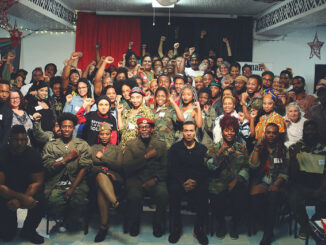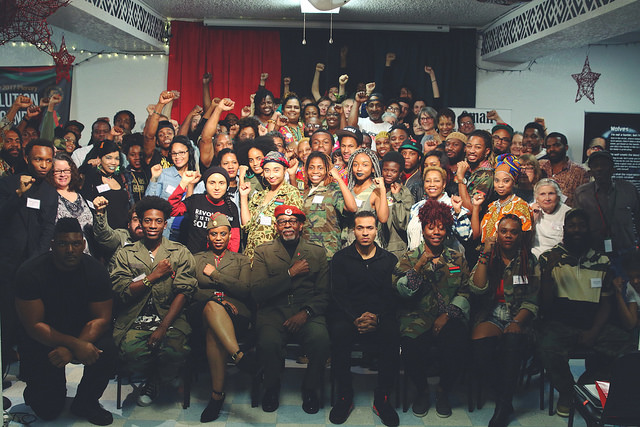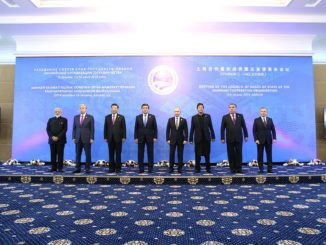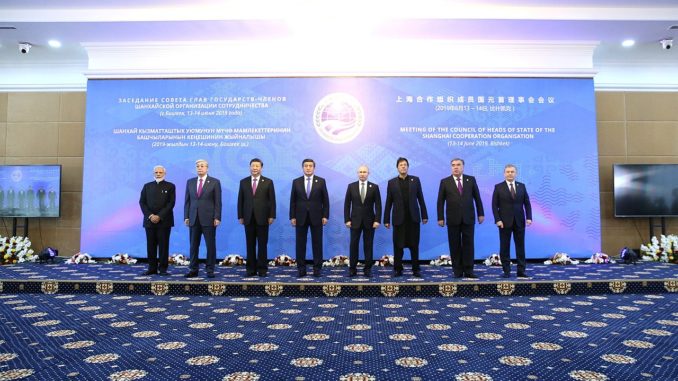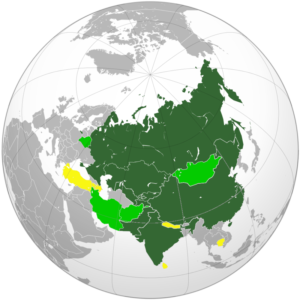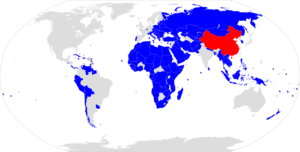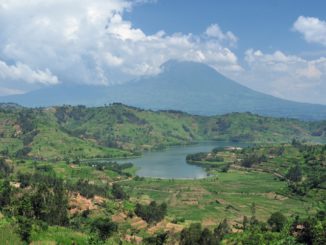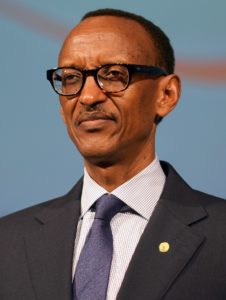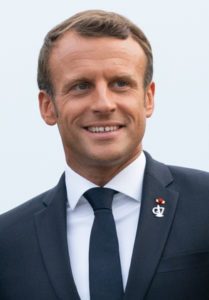SAINT PETERSBURG, Florida—Three of the four U.S.-based defendants in the U.S. government’s case about a conspiracy with Russia to sow social discord spoke out May 10 for the first time since indictments dropped last month.
“It’s important to note where theres’s some troubling aspects of this case, where the federal government is using federal criminal law to stifle dissenting voices,” said Leonard Goodman, attorney for Penny Hess, chair of the African People’s Solidarity Committee. The committee formed in 1976 in Saint Petersburg for white people to organize in the white community for reparations to Africans.
The attorneys of the newly dubbed “Uhuru 3″—Hess, as well as African People’s Socialist Party (APSP) Chairman Omali Yeshitela and Uhuru Solidarity Movement Chair Jesse Nevel—appeared remotely on Zoom, while the defendants stood at a podium in the Uhuru House, one of the party’s properties in Saint Petersburg.
“There’s been a misunderstanding about my connection to Russia because my first and most significant contact I had with Russians was when I was in Berlin, Germany,” said Omali Yeshitela, chairman of the African People’s Socialist Party.
That’s when his attorney, Ade Griffin, intervened. “I ask that you not to get into any specifics about contacts with Russia at this point.”
Yeshitela said he wanted to explain his experience in the U.S. Army dating back to 1961, when he saw the Berlin Wall erected, which split Germany into east and west. “That’s something that’s not been mentioned at all,” he said, adding, “My crime is my absolute belief in free speech.” Yeshitela went on to recount that he has faced charges and abuse at the hands of police, usually for demonstrating on behalf of the right to free speech. “This is no different,” he said. “They kill Black people for talking in this country … If it’s not afforded to us, there can be no free speech for anybody.”
White Defendants Make Their Case
Hess, a white woman who has been part of the movement since 1976, spoke of the wealth stolen from African people.
“The chairman has done what cities and states don’t do,” she said in explaining the work of the party to build institutions that support African people.
“[These charges] are false to an idiotic and laughable extreme,” Nevel of the Uhuru Solidarity Movement told the press, adding later in his address the U.S. government knows Yeshitela is not a Russian agent. “They know who he really is. Just like they knew who Martin Luther King really was. Who Marcus Garvey really was. Who Malcolm X really was. Who Fred Hampton really was. A freedom fighter for his people and for the oppressed peoples of the world. But they can’t openly say that. They can’t openly charge Chairman Omali Yeshitela with being an agent for freedom. So they lie, and charge him as an agent of some foreign power we’re all supposed to be afraid of.”
Similarly, Nevel spoke of his and Hess’ roles as white people.
“They know who we work for: The African liberation movement,” Nevel said. “We speak not for some foreign malign influence, but for millions of other white people out there who refuse to be complicit with our own government’s unceasing state sanctioned violence against African people.”
Nevel then said that despite the U.S. government’s best efforts to scare white people away from liberation movements, “More and more of us are becoming co-conspirators, too.”
Yeshitela told the press the party was forced to start its own radio station because a white-owned station kicked it off the air.
“They’ve never accused us of hurting anybody or stealing from anybody. It’s [about suppressing] free speech.”
Pointing to Colonialism
The APSP opposed U.S. support of Ukraine after Russia intervened in Ukraine in February 2022. They have connected the U.S. position to a longer history of European colonialism. Yeshitela has noted African countries have not supported the Ukraine position en masse, despite U.S. threats, as discussed in this Toward Freedom article.
Yeshitela denounced the press for only relying on the U.S. government’s press release to report on the party. He tied that to the colonial relationship that has dominated the world for more than 500 years, since Christopher Columbus accidentally landed in the Americas after trying to reach India, intent on exploiting the wealth of that land.
“For the longest period of time, white people have been subjects of history and African people have only been the objects of history,” Yeshitela said. “When we begin to speak for ourselves, we don’t tell the same story … It can be disturbing … And you find out to your surprise that the slave doesn’t feel the same way about the slavemaster as the slavemaster feels about himself.”
Next Steps
The party, nor its attorneys, announced during the press conference the next date for a court appearance. If found guilty, the accused face up to 15 years in prison.
The APSP has launched a campaign called “Hands Off Uhuru! Hands Off Africa!” through which it is fundraising to cover the cost of legal fees.
The fourth U.S.-based defendant, Augustus C. Romain, Jr., better known as Gazi Kodzo, faces up to five years in prison. When the indictment dropped, Romain had been in prison on unrelated charges since July. Romain was the APSP’s secretary general until late 2018. They have since gone on to start another group, Black Hammer, which lost many of its young members in the summer of 2021 following the group’s attacks on other political groups. Romain’s attorney, Stacey Flynn, did not reply to Toward Freedom‘s inquiry as of press time.
Toward Freedom has reported on the FBI’s raid of the APSP’s properties, provided information on Regions Bank ending its 20-year relationship with the party, and covered the U.S. Department of Justice’s announcement of indictments as well as the recent arraignments.
Julie Varughese is editor of Toward Freedom.

